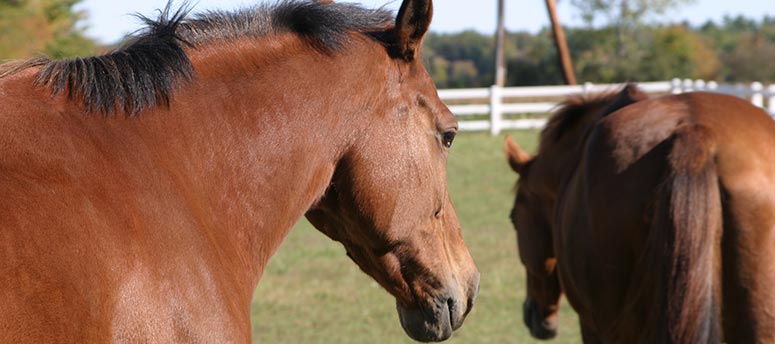 Lack of Energy
Lack of Energy
By: Dr. Lydia Gray
What is it?
When most people talk about a horse that lacks energy, they are usually referring to a horse that doesn’t seem to be enthusiastic in his work or that can’t sustain work for very long. However, in all other respects he appears healthy. That is, he is bright and alert, at an appropriate weight, with a good appetite and normal stools. Depression and lethargy are more serious mental states where a horse is less responsive than normal to stimuli in the environment, acting indifferent or even drowsy.
What can be done about it?
While depression and lethargy require immediate veterinary attention, it’s also a good idea to have a complete physical examination and bloodwork performed on horses that seem to lack energy to rule out medical reasons (such as Cushing’s Disease, parasites or "tying up"). Other reasons include not enough calories in the diet, not enough fitness for the level of work, and dehydration or electrolyte depletion, especially when it’s hot. In addition to a conditioning program, supplementing with fat for additional calories and electrolytes to replace those lost in sweat as well as to stimulate drinking may be helpful. There is some evidence suggesting the amino acid L-carnitine and the branched chain amino acids valine, leucine and isoleucine may delay the onset of fatigue in horses.
What else do I need to know?
Energy supplements can help support horses diagnosed with lack of energy due to anemia. These supplements support all the components of healthy red blood cells, not just iron. Also, anemia can be caused by a number of things--such as gastric or colonic ulcers, parasites, or infection--so it’s important to diagnose the underlying problem and treat that.
SmartPak strongly encourages you to consult your veterinarian regarding specific questions about your horse's health. This information is not intended to diagnose or treat any disease, and is purely educational.